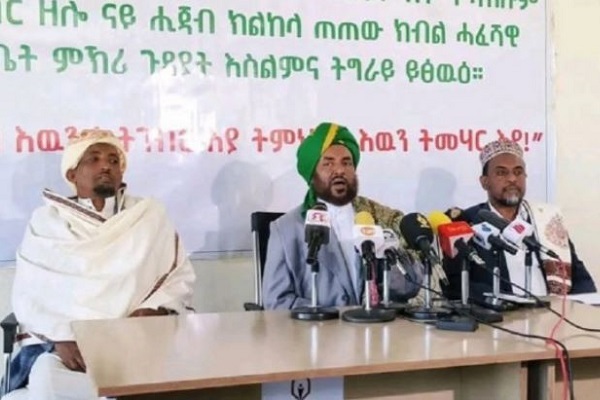AhlulBayt News Agency: The Tigray Islamic Affairs Supreme Council has expressed strong opposition to a recent ban on hijabs in schools in Axum town, warning that it may resort to "further peaceful measures in consultation with believers" if the issue remains unresolved.
In a statement released in Mekelle, the administrative capital of Tigray, the council called for adherence to the Federal Ministry of Education's guidelines concerning Muslim students' dress code, Garowi Online reported on Sunday.
The council emphasized the importance of respecting constitutional rights, human rights, and regional laws, stating, "This hijab ban violates citizens' human rights, the constitution, Ministry of Education guidelines, and our regional laws."
The council further asserted that school regulations must align with the constitution, highlighting their expectation that the request for hijab-wearing be addressed in accordance with Ministry of Education regulations.
Haji Mohammed Kahsay, Secretary of the Islamic Affairs Council in Tigray, previously told Addis Standard that the hijab restriction has disproportionately affected grade 12 students. "Some students have been prevented from registering for the national exams because they were not allowed to enter the school premises," he said.
He added that introducing a religious-based crisis amidst ongoing political and environmental challenges in Tigray risks exacerbating the region's instability. The council also stressed the consequences of the ban on students, noting, "Preventing them from attending school just for wearing a hijab that reflects their identity is illegal and unjust."
Meanwhile, the Ethiopian Islamic Affairs Supreme Council has acknowledged the situation, stating that "no resolution has been reached" regarding the case of Muslim students in Axum who were barred from attending classes due to their hijabs.
Muslims make up about 34% to 40% of Ethiopia's population, making Islam the second-largest religion after Ethiopian Orthodox Christianity.
Despite their significant presence, Muslims in Ethiopia have historically faced socio-political and economic marginalization, occasionally leading to tensions over religious rights, representation, and government policies.
/129
In a statement released in Mekelle, the administrative capital of Tigray, the council called for adherence to the Federal Ministry of Education's guidelines concerning Muslim students' dress code, Garowi Online reported on Sunday.
The council emphasized the importance of respecting constitutional rights, human rights, and regional laws, stating, "This hijab ban violates citizens' human rights, the constitution, Ministry of Education guidelines, and our regional laws."
The council further asserted that school regulations must align with the constitution, highlighting their expectation that the request for hijab-wearing be addressed in accordance with Ministry of Education regulations.
Haji Mohammed Kahsay, Secretary of the Islamic Affairs Council in Tigray, previously told Addis Standard that the hijab restriction has disproportionately affected grade 12 students. "Some students have been prevented from registering for the national exams because they were not allowed to enter the school premises," he said.
He added that introducing a religious-based crisis amidst ongoing political and environmental challenges in Tigray risks exacerbating the region's instability. The council also stressed the consequences of the ban on students, noting, "Preventing them from attending school just for wearing a hijab that reflects their identity is illegal and unjust."
Meanwhile, the Ethiopian Islamic Affairs Supreme Council has acknowledged the situation, stating that "no resolution has been reached" regarding the case of Muslim students in Axum who were barred from attending classes due to their hijabs.
Muslims make up about 34% to 40% of Ethiopia's population, making Islam the second-largest religion after Ethiopian Orthodox Christianity.
Despite their significant presence, Muslims in Ethiopia have historically faced socio-political and economic marginalization, occasionally leading to tensions over religious rights, representation, and government policies.
/129

